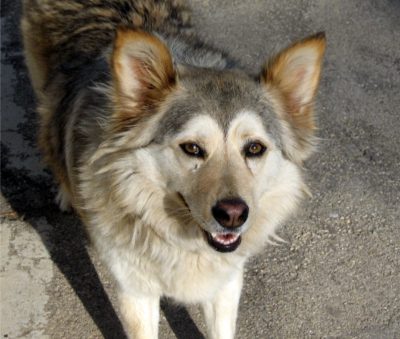Introduction
 As a dog owner, you’ve probably caught your furry friend munching on grass at some point. But have you ever wondered why dogs eat grass? Is it a sign of a nutritional deficiency, a behavioral issue, or just a quirky habit? In this article, we’ll delve into the possible reasons behind this behavior, explore its implications for your dog’s health, and provide you with practical tips to address this behavior.
As a dog owner, you’ve probably caught your furry friend munching on grass at some point. But have you ever wondered why dogs eat grass? Is it a sign of a nutritional deficiency, a behavioral issue, or just a quirky habit? In this article, we’ll delve into the possible reasons behind this behavior, explore its implications for your dog’s health, and provide you with practical tips to address this behavior.
Dogs eating grass is a common phenomenon that has puzzled many pet owners. While it may seem like a harmless behavior, it’s essential to understand the underlying reasons behind it. By doing so, you can take steps to ensure your dog’s health and well-being. In this article, we’ll cover the various theories behind canine grass eating, its health implications, and provide you with tips on how to address this behavior.
Theories Behind Dog Grass Eating
1. Instinctual Behavior
One theory suggests that eating grass is an instinctual trait inherited from wild ancestors. In the wild, dogs would consume small amounts of plants as part of their diet, possibly to supplement their nutrition or aid digestion. This natural behavior could explain why domesticated dogs still exhibit grass eating.
Some key points to consider about instinctual behavior include:
- Dogs are omnivores, which means they eat both plants and animals
- In the wild, dogs would eat a variety of plants, including grasses, fruits, and vegetables
- Domesticated dogs may still exhibit this behavior due to their evolutionary history
- Instinctual behavior can be influenced by genetics, environment, and learning
For example, a study published in the Journal of Mammalogy found that wolves, the ancestors of domesticated dogs, eat plants as part of their diet. The study suggested that this behavior is an adaptation to their environment and helps them survive in times of food scarcity.
2. Nutritional Needs
Dogs may eat grass due to dietary deficiencies, such as a lack of fiber or essential nutrients. If their regular diet is unbalanced, they might seek out grass to fulfill these needs. Ensuring your dog’s diet is nutritionally complete can help reduce this behavior.
Some key points to consider about nutritional needs include:
Dogs require a balanced diet that includes protein, fat, carbohydrates, vitamins, and minerals
A lack of fiber or essential nutrients can lead to grass eating
Consult with your veterinarian to ensure your dog’s diet is nutritionally complete
Consider adding supplements or vitamins to your dog’s diet if necessary
For instance, a study published in the Journal of Veterinary Nutrition found that dogs that ate a diet rich in fiber had reduced grass eating behavior. The study suggested that fiber helps regulate digestion and reduces the need for dogs to seek out alternative sources of nutrition.
3. Psychological Factors
Boredom, anxiety, or stress can drive dogs to eat grass. If your dog is lacking mental stimulation or experiencing emotional distress, they might engage in grass eating as a coping mechanism. Providing adequate exercise, toys, and attention can address these underlying issues.
Some key points to consider about psychological factors include:
- Dogs require interactive mental stimulation and exercise to prevent boredom and stress
- Anxiety and stress can lead to grass eating
- Providing adequate attention and interaction can help reduce stress and anxiety
- Consider enrolling your dog in obedience or agility training to provide mental stimulation
For example, a study published in the Journal of Veterinary Behavior found that dogs that engaged in interactive play had reduced stress levels and grass eating behavior. The study suggested that interactive play helps dogs release pent-up energy and reduces the need for coping mechanisms like grass eating.
4. Health-Related Causes
In some cases, dogs eat grass to self-soothe gastrointestinal discomfort. This behavior might be a natural way to induce vomiting and relieve an upset stomach. Monitoring your dog’s health and consulting a veterinarian if this behavior persists is crucial.
Some key points to consider about health-related causes include:
- Gastrointestinal issues are common in dogs
- Grass eating can be a symptom of underlying health problems
- Monitoring your dog’s health and consulting a veterinarian is essential
- Keep an eye out for other symptoms like vomiting, diarrhea, or lethargy
For instance, a study published in the Journal of Veterinary Internal Medicine found that dogs with gastrointestinal issues had increased grass eating behavior. The study suggested that grass eating is a coping mechanism for dogs with digestive problems.
Health Implications of Canine Grass Eating
While occasional grass eating is generally harmless, excessive consumption can pose risks. Ingesting pesticides, herbicides, or parasites from contaminated grass can harm your dog. Monitoring the frequency and context of grass eating is essential to ensure your dog’s health.
Some potential health risks associated with grass eating include:
- Ingesting pesticides or herbicides
- Contracting parasites, such as hookworms or roundworms
- Developing gastrointestinal issues, such as diarrhea or vomiting
- Experiencing allergic reactions or sensitivities
For example, a study published in the Journal of Toxicology found that dogs that ingested pesticides had increased risk of developing health problems. The study suggested that pesticides can cause a range of health issues, from mild symptoms like vomiting to severe conditions like organ damage.
Tips for Pet Owners
1. Monitor Behavior
Keep track of how often your dog eats grass and the amount consumed. Changes in behavior could indicate an underlying issue.
Some tips for monitoring behavior include:
- Keep a journal or log to track your dog’s grass eating
- Monitor the frequency and amount of grass consumed
- Look for changes in behavior or appetite
- Consult with your veterinarian if you notice any changes or concerns
2. Ensure Proper Nutrition
Feed a balanced diet that meets your dog’s nutritional needs. Consult your veterinarian to ensure your dog’s diet is complete.
Some tips for ensuring proper nutrition include:
- Consult with your veterinarian to determine the best diet for your dog
- Choose a high-quality dog food that meets your dog’s nutritional needs
- Consider adding supplements or vitamins to your dog’s diet
- Monitor your dog’s weight and adjust their diet accordingly
3. Provide Mental Stimulation
Engage your dog with toys, exercises, and interactive activities to prevent boredom and stress-related grass eating.
Some tips for providing mental stimulation include:
- Provide a variety of toys and activities to keep your dog engaged
- Engage in interactive play, such as fetch or hide-and-seek
- Consider enrolling your dog in obedience or agility training
- Rotate toys and activities regularly to prevent boredom
4. Consult a Veterinarian
If grass eating becomes frequent or is accompanied by other symptoms like vomiting or lethargy, seek veterinary advice to rule out health problems.
Some tips for consulting a veterinarian include:
- Schedule regular check-ups with your veterinarian
- Monitor your dog’s health and behavior
- Seek veterinary advice if you notice any changes or concerns
- Keep a record of your dog’s medical history and share it with your veterinarian
Common Misconceptions
Myth: Dogs eat grass because they are ill.
Reality: While illness can sometimes be a factor, many healthy dogs eat grass due to instinct, curiosity, or boredom.
Myth: Eating grass is harmful to dogs.
Reality: Occasional grass eating is usually harmless, but contaminants on grass can pose risks. Keeping your yard free of harmful substances is essential.
Myth: Dogs eat grass to induce vomiting.
Reality: While some dogs may eat grass to self-soothe gastrointestinal discomfort, this behavior is not a reliable way to induce vomiting. If your dog is experiencing vomiting or other symptoms, consult your veterinarian for proper diagnosis and treatment.
Conclusion
Understanding why dogs eat grass involves considering instinct, nutrition, psychology, and health. By monitoring your dog’s behavior, ensuring a balanced diet, providing mental stimulation, and consulting your veterinarian when necessary, you can help ensure your dog’s well-being. Remember, while grass eating is normal, it’s always wise to be vigilant and proactive in your dog’s care.
Some key takeaways from this article include:
- Dogs eat grass for a variety of reasons, including instinct, nutrition, and psychology
- Monitoring behavior and ensuring proper nutrition can help reduce grass eating
- Providing mental stimulation and consulting a veterinarian can help address underlying issues
- Keeping your yard free of harmful substances can help prevent health risks
Additional Tips for Pet Owners
1. Keep Your Yard Clean
Keep your yard free of harmful substances, such as pesticides, herbicides, and fertilizers. These substances can pose risks to your dog’s health if ingested.
Some tips for keeping your yard clean include:
- Use natural and organic methods to control pests and weeds
- Avoid using pesticides, herbicides, and fertilizers
- Keep your yard well-maintained and free of debris
- Consider using a dog-friendly lawn alternative, such as artificial turf
2. Provide Alternative Activities
Provide your dog with alternative activities to engage in, such as playing fetch or hide-and-seek. This can help reduce boredom and stress-related grass eating.
Some tips for providing alternative activities include:
- Engage in interactive play with your dog, such as fetch or tug-of-war
- Provide a variety of toys and activities to keep your dog engaged
- Consider enrolling your dog in obedience or agility training
- Rotate toys and activities regularly to prevent boredom
3. Monitor Your Dog’s Health
Monitor your dog’s health and behavior, and consult your veterinarian if you notice any changes or concerns. This can help identify underlying issues and prevent health problems.
Some tips for monitoring your dog’s health include:
- Keep a record of your dog’s medical history and share it with your veterinarian
- Monitor your dog’s appetite, energy level, and stool quality
- Look for signs of illness, such as vomiting, diarrhea, or lethargy
- Consult your veterinarian if you notice any changes or concerns
4. Consider Supplements
Consider adding supplements or vitamins to your dog’s diet if necessary. This can help ensure your dog is getting all the necessary nutrients and reduce grass eating behavior.
Some tips for considering supplements include:
- Consult with your veterinarian to determine the best supplements for your dog
- Choose high-quality supplements that meet your dog’s nutritional needs
- Monitor your dog’s response to supplements and adjust as necessary
- Consider adding fiber supplements to your dog’s diet to reduce grass eating
By following these additional tips, you can help ensure your dog’s health and well-being. Remember to always consult with your veterinarian if you have any concerns or questions about your dog’s behavior or health.
Final Thoughts
Dogs eating grass is a common phenomenon that can be caused by a variety of factors, including instinct, nutrition, psychology, and health. By understanding the underlying reasons behind this behavior, you can take steps to ensure your dog’s health and well-being. Remember to monitor your dog’s behavior, ensure proper nutrition, provide mental stimulation, and consult your veterinarian when necessary. With the right care and attention, you can help your dog live a happy and healthy life.



